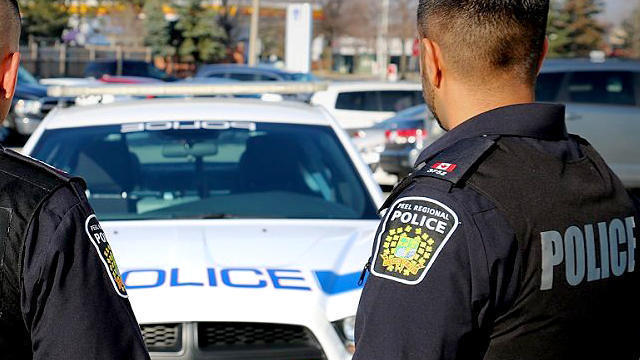Police to Officially Suspend Carding and Street Checks in 2017 in Brampton
Published December 22, 2016 at 5:49 pm

For years, the practice of carding (known in Peel as street checks) was deeply controversial, with some claiming it was necessary to prevent crime and others insisting it bred distrust and animosit
For years, the practice of carding (known in Peel as street checks) was deeply controversial, with some claiming it was necessary to prevent crime and others insisting it bred distrust and animosity between police and civilians–especially civilians of colour.
The Ontario government recently announced that starting January 1, a new regulation will come into effect that will prohibit police from “requesting identifying information arbitrarily, or based on a person’s race or presence in a high-crime neighbourhood during certain police-public interactions.”
Although the topic has been controversial for some time, the move is the result of feedback from public consultations on how to improve police transparency, oversight and public confidence. The change will also establish new training, record-keeping and reporting requirements to strengthen accountability.
The regulation also sets out new rules that police must follow when requesting identifying information.
Those new rules and criteria apply if an officer asks someone for identification while:
- Looking into suspicious activities
- Gathering intelligence
- Investigating possible criminal activity.
The new rules do not apply if police ask for identifying information or to see an identifying document while:
- Doing a traffic stop
- Arresting or detaining someone
- Executing a warrant
- Investigating a specific crime.
Ontario is actually the first jurisdiction in Canada to set rules for voluntary police-public interactions where police are seeking identifying information. While some have argued that the new rules will hinder crime prevention, they help clarify that arbitrary street stops are not akin to arrests or detainments. While citizens have always been free to refuse to provide ID to officers during arbitrary street checks, many were unaware that the interactions were voluntary.
“It is absolutely essential that everyone in this province be treated with dignity and respect regardless of their race or religion,” says Michael Coteau, the minister responsible for anti-racism and the Minister of Children and Youth Services. “Working through the Anti-Racism Directorate, I am committed to finding ways to break down systemic barriers. I look forward to continuing to work with Minister Flynn and the Ministry of Community Safety and Correctional Services to address and eliminate systemic racism in the justice sector, and build a more inclusive society.”
The move also works to address issues of discrimination, as reports have demonstrated that people of colour are more likely to be stopped and questioned than other segments of the population.
“These rules will ensure these interactions are conducted without bias or discrimination, and done in a manner that promotes public confidence and keeps Ontario communities safe,” the government release reads.
According to the provincial government, training–which was developed in consultation with an expert roundtable–has also been incorporated into the basic training program for new police recruits at the Ontario Police College. The Code of Conduct for police has been updated to reflect the new regulation and failure to follow the rules will be considered a Code of Conduct violation that may result in discipline.
Ontario will also appoint an independent reviewer to complete a review of the regulation within two years and in 2017, the province will launch a multi-year academic study to understand the impact of collecting information on the ability of police to solve crime, analyze and identify the impact of race-based collections and analyze the impact of the new regulations on this practice.
INsauga's Editorial Standards and Policies